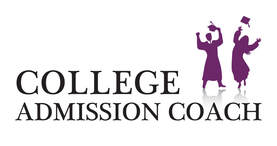Artificial Intelligence and College Applications
Background:
With the growing use of AI tools like ChapGPT, WordTune, and QuillBot, higher education is in the midst of a change when it comes to how to teach writing, evaluate student writing, and enforce plagiarism rules. College admissions is no exception.
As of yet, few colleges have introduced specific policies regulating the use of AI tools in the admissions process, but that will likely change in the next year or so. Against this backdrop, our College Admission Coach team wanted to get ahead of the trend, and articulate how we as a practice will be responding to this new technology, with all its accompanying advantages and disadvantages. Please see below for our current policy, with the caveat that we will be updating it depending on the policies enacted by schools, or higher education organizations like NACAC and HECA.
With the growing use of AI tools like ChapGPT, WordTune, and QuillBot, higher education is in the midst of a change when it comes to how to teach writing, evaluate student writing, and enforce plagiarism rules. College admissions is no exception.
As of yet, few colleges have introduced specific policies regulating the use of AI tools in the admissions process, but that will likely change in the next year or so. Against this backdrop, our College Admission Coach team wanted to get ahead of the trend, and articulate how we as a practice will be responding to this new technology, with all its accompanying advantages and disadvantages. Please see below for our current policy, with the caveat that we will be updating it depending on the policies enacted by schools, or higher education organizations like NACAC and HECA.
Our Current Policy
- It’s essential that all the writing students submit to colleges is their own writing. In fact, that’s something students sign an agreement attesting to when submitting their applications.
- AI tools can be useful, especially as a brainstorming technique. While we do not support students using these tools as a substitute for their own writing (that would be unethical), in our one-on-one meetings with students, our coaches may use AI tools to show students the different possibilities that exist when creating a narrative. Together, the student and coach may tell ChatGPT “write a horror version of the soccer essay” or “write a satirical version of the soccer essay.” Again, students are not allowed to copy/paste the resulting text generated by the AI, but the use of these tools can be an illuminating opportunity for students to see the myriad ways it’s possible to tell a single story, hopefully, inspiring their own writing to new heights.
- If a College Admission Coach team member discovers a student has not been submitting their own writing for feedback, whether that’s because an older sibling wrote it or ChatGPT wrote it, the coach will discuss the ethical infraction directly with the student, inform the student’s parents, and insist that the student use their own writing. Our team will not be party to the submission of work that is not the student’s own work. This is the ethical course of action, and it’s also the course of action in the student’s own interest! Colleges put application essays through plagiarism checkers, and AI-generated text regularly plagiarizes existing writing.
- Our team is here to help our students write their best essays, in their own authentic voice, and become better writers in the process. We’re not blind to the exciting new potential of AI-tools, especially when it comes to writing or art, but it is not ethical to substitute that for a student’s own writing.
Ethical Use of Artificial Intelligence During the College Application Process
While we do not believe that AI should be used for writing college essays, there are some time-saving uses of AI for doing college research. Here is a fantastic article by Dr. Aviva Leggat, which was published by Forbes, and provides concrete tips and instructions that students may find helpful.
